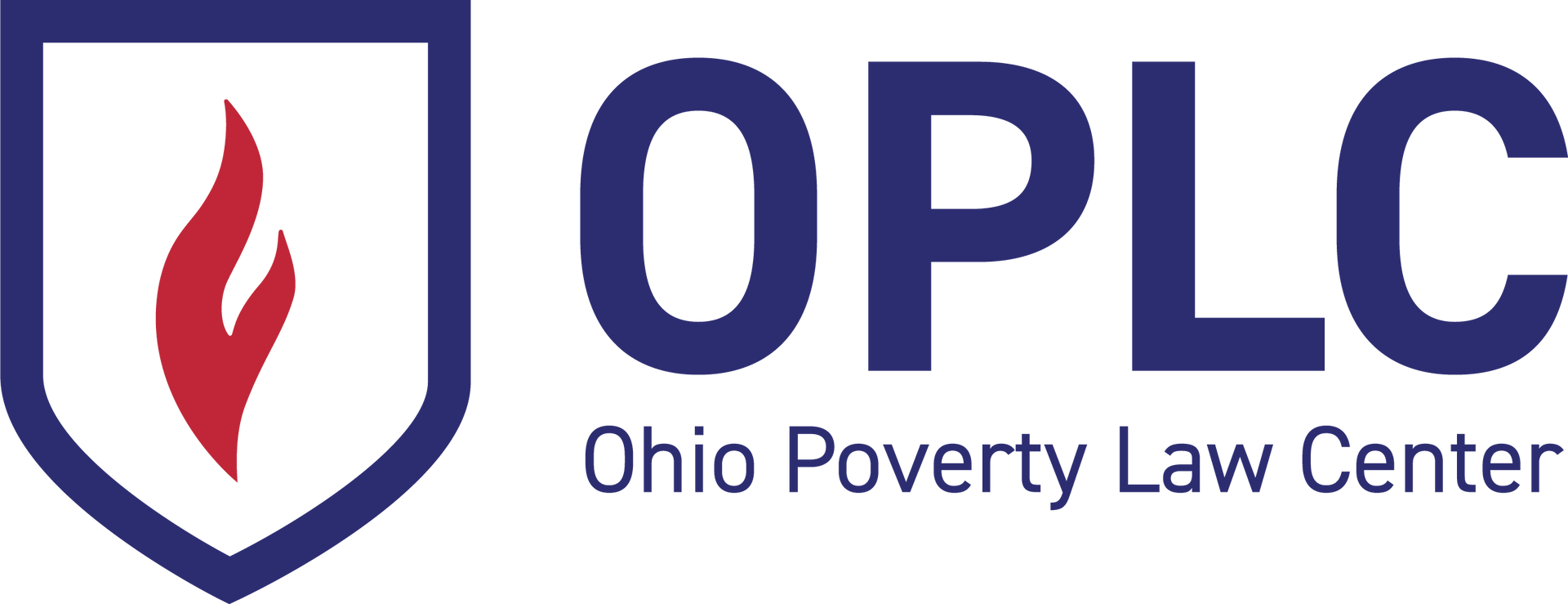JUNE 2021 NEWSLETTER
Critical Supports for Low-Income Families Removed from Senate’s Budget
Last week, the Ohio Senate unveiled its version of the budget. We were happy to see proposals to extend Medicaid health coverage to mothers for 12 months after giving birth and expand eligibility for publicly funded childcare to 142 percent of the federal poverty level. We are concerned about other provisions of the budget including the removal of the Fair School Funding Plan—which had broad support in the education community, the five-percent income tax cut that reduces funding for important programs, and language that seeks to overturn the Ohio Supreme Court decision that indigent parents have a right to counsel in probate court adoption proceedings where losing permanent custody of their children is at stake. OPLC testified before the Finance Committee raising concern about several other provisions including:
- Elimination of Funding for the SCHIP Lead Abatement Program–This program provides lead abatement services for children under the age of six or pregnant women who qualify for Medicaid. The program has abated over 200 homes helping more than 580 children. The elimination of the SCHIP lead abatement program stalls Ohio’s progress in eliminating lead hazards before a child is poisoned.
- Medicaid Managed Care Procurement—The Senate is proposing to require the Department of Medicaid (ODM) to redo its procurement process for managed care plans. The provision would have ODM suspend its current selection process for new managed care organizations and begin a new process. The Ohio Department of Medicaid’s multi-year procurement process resulted in a significantly stronger managed care contract that will improve the wellbeing of some of Ohio’s most vulnerable residents. The Ohio Poverty Law Center released a report about the improvements the new contract will make by enhancing care coordination, standardizing the appeals process, and focusing on social determinants of health.
- Access to Broadband—The $190 million appropriated for Ohio Residential Broadband Expansion Grant Program was removed to help pay for tax cuts. The grant program would help to extend broadband infrastructure to unserved communities. There are still more than one million Ohioans who lack internet access.
- Federal Unemployment Compensation Programs—The Senate would require that Ohio opt out of federal unemployment compensation programs before they expire. Opting out of these programs early will only exacerbate the struggles that unemployed Ohioans are still facing.
The Senate is expected to vote on the budget on June 10. A conference committee will be named to work out the differences between the House and Senate budgets. The budget must be signed by Governor Mike DeWine by June 30.
Proposed Tax Cut Does Not Help Those Who Need it the Most
The five percent across-the-board income tax reduction proposed by the Senate will not benefit low-income working Ohioans earning less than $22,000 annually. Any reduction in taxes should be targeted to those who need it the most to ensure economic recovery. According to a Policy Matters Ohio report on the proposed tax cut, “those in the middle fifth of the income spectrum, making between $41,000 and $64,000 a year, on average would pay $22 less a year. Nearly half of the tax reduction would go to those in the top 5%, who are paid more than $221,000 a year.”
Instead of the across-the-board tax cut, money could be better invested in programs that support families that struggle to make ends meet like childcare, kinship care, access to broadband, and lead abatement. But if a change is made in tax policy, lawmakers should enact a 10 percent refundable option to the existing 30 percent state Earned Income Tax nonrefundable credit. This targeted tax policy supports Ohioans working in low-wage jobs. According to modeling done by the Institute for Tax and Economic Policy, a 10 percent refundable credit would help 37 percent of families earning less than $22,000 a year with an average benefit of $230.
Ohio Poverty Law Center 2020 Annual Report Released
We are pleased to share our 2020 annual report. Despite unprecedented challenges this year, we are proud of our achievements and the progress made on behalf of Ohioans living in poverty. We were able to improve policies to respond to the pandemic, promote family stability, health, and education, and remove barriers to employment. We appreciate your support of our work.
